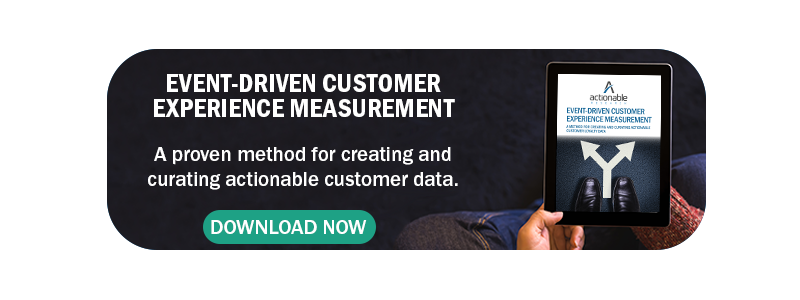When it comes to market research, there are a few methodologies that are tried-and-true, work within a number of industry verticals, and are generally useful skills to have. One of those methods, the Swiss Army Knife of Market Research, is tracking research. Tracking research offers many advantages to companies who have a need to understand how the customer landscape changes over time, the creation and evolution of competitive offerings, and how sentiment effects your business. How can your business benefit from tracking research?
Customer Engagement/Experience
The most obvious use of tracking research is keeping tabs on your customers. Customer experience and engagement are important gauges for companies with a number of microtransactions or where customers purchase on a regular basis. In this case I’m not talking about follow up emails or calls after purchase, which only capture extremely positive or negative responses. I’m talking about a concerted effort to capture the experience of a cross section of customers on a regular basis, perhaps quarterly or biannually. The more transactions the shorter the time interval between surveys. It’s important to keep an eye on how your customers feel about you and compare that to previous waves. If something has changed, the sooner you find out the sooner you can fix it. This is probably the most popular type of tracking.
Tracking Competitive Offerings
It’s important to know who else is in your space and if anything changes that would cause you to take evasive action. I’m sure you researched this when you launched your business, new product line or new service, but nothing stands still. Current and potential customers are the best place to gauge how new competitive developments have, or may have, an impact on your business. Look for trends over time, and make sure you understand how to deal with them.
Marketing Message Effectiveness
Marketing departments require feedback to make sure their messages are effective and moving the needle. Sales volumes will likely reflect this, but when they it’s not obvious it’s important know if it’s the message or where they are placed that is the limiting factor. How are your messages doing over time? Do they need to be refreshed? How do they compare with your competitor’s messages? Are you missing an opportunity?
Purchase Likelihood
As you make incremental changes to your product or service, it’s important to keep track of how they are being received. Direct response post-purchase is important, but testing purchase likelihood as you move through the product lifecycle is also an important piece of information to understand. How will this change affect potential purchases? Is it time to retire this version of my product and innovate? How are competitive offerings effecting likelihood of purchasing my current product?
Product Effectiveness
Companies that partner with B2B audiences sometimes need to make sure their offering is being iterated correctly, and that their professional customers are seeing improvement in how they can use your product with their customers. This concept works hand in hand with purchase likelihood, but is likely more important because or the symbiotic nature of the product. In other words, B2B relationships are also important to track as much as consumer relationships.
And Many More…
This is far from an exhaustive list, and I’m sure you can come up with things you would like to track for your business quite easily. The important thing to remember is that your research partner must understand what to track, how to manage information gathering for your audience, and provide an easy, effective tool for understanding the information that will come rolling in. Without this understanding, you just have a lot of data, customers who might not be happy, and no real way to translate the data into action.
Make Tracking Actionable
Our team at Actionable Research has been performing tracking research for more than 17 years. We focus on giving you key findings and actionable recommendation because we know attaining your data is only the beginning. Contacts us today to learn



